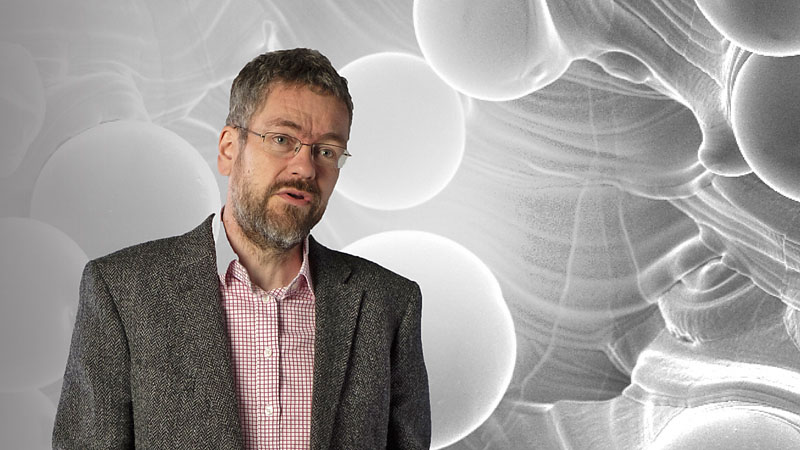Advancing laser technologies

We are propelling cutting-edge research into laser technologies and applications in the field of manufacturing, with the goal of cutting costs while increasing reliability, accuracy and precision.
Since its first demonstration in 1960, the laser has become an integral part of society. From functioning as a simple light source to cutting through the planet's toughest materials, lasers have a multitude of applications.
Professor Duncan Hand has spent his career researching these high-power laser applications in the field of manufacturing and is leading the High Power Laser Applications Research at Heriot-Watt.
He is currently investigating methods of directly welding optical materials to structural materials, such as glass to metal, using an ultra-short pulsed laser. The research involves the development of laser scanning strategies, testing of different laser parameters and testing of manufactured parts.
“This area of research is important as there exists a wide range of applications where it is necessary to bond optical and structural materials,” he explains. “One example is in the construction of laser systems where optics need to be very accurately aligned and then bonded in place. Currently adhesives are used, however, these have a range of problems from contamination of optical surfaces to lifetime issues.”
The team have now succeeded in welding glass and metal together using an ultrafast laser system, in a breakthrough for the manufacturing industry. Various optical materials such as quartz, borosilicate glass and even sapphire were all successfully welded to metals like aluminium, titanium and stainless steel using the laser system, which provides very short, picosecond pulses of infrared light in tracks along the materials to fuse them together.
The new process could transform the manufacturing sector and have direct applications in the aerospace, defence, optical technology and even healthcare fields. Professor Hand would like to see this strand of research enable lasers to be manufactured with lower cost and higher reliability which would then have a knock-on effect for the applications of these lasers. To achieve this goal, his team are now focused on increasing the yield of their activities by making the process more reliable.
Real-world impact
Led by Professor Hand and Professor Marc Desmulliez, a £3.7M Medical Device Manufacturing Centre (MDMC) is being based at our Edinburgh Campus, funded and managed by the European Regional Development Fund, Scottish Enterprise, the Edinburgh & South East Scotland City Region Deal.
Its mission, in partnership with medical device design companies, clinicians, and patient groups, is to assist small and medium sized companies in the translation of medical device concepts through to small batch commercial prototypes. Expert advice will be provided on manufacturing engineering, regulatory issues and funding, coupled with technically-supported access to manufacturing facilities.
This collaboration between engineers, clinicians and business development experts from four universities across Scotland: Heriot-Watt, Edinburgh, Glasgow, and Robert Gordon, will translate engineering and clinical knowhow to ensure that medical device manufacture is both practical and commercially viable.
Read more:
New Medical Device Manufacturing Centre at Heriot-Watt University
Revolutionary weld joins glass to metal
Key information
Duncan Hand
- Professor
- d.p.hand@hw.ac.uk